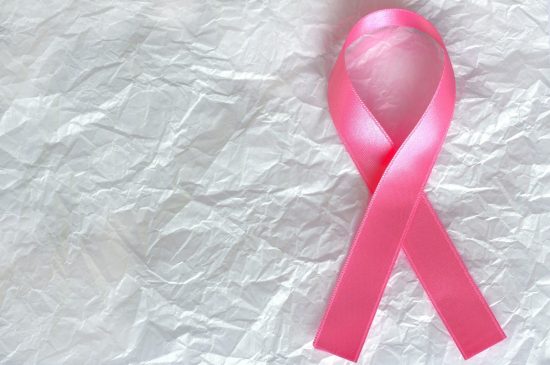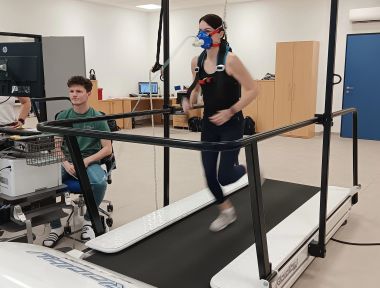October has arrived and with that breast cancer awareness begins. For those of you who don’t know, October, or pink month, is a month dedicated to acknowledging and educating people about breast cancer. It is a worldwide effort to raise awareness about this condition, and hopefully help women and men reach a diagnosis earlier. In today’s article I will be interviewing Dr. Ariel Rodrigues da Rocha from Panafricare Clinic. He will be answering some of the most frequently asked questions about breast cancer
Leticia Miguel: What is breast cancer and what are the most common types of breast cancer?
Dr. Ariel da Rocha: Breast cancer is a disease in which the breast cells grow out of control. There are several types of breast cancer and the type of cancer depends on which cells are being affected. We can classify them in two broad categories: Invasive and Non- invasive. Non-invasive breast cancer is restricted to the milk ducts or lobules whereas the invasive type spreads beyond the duct/lobules into the surrounding tissue. Invasive ductal carcinoma is the most common type of malignancy making up to 80 % of all cases, while inflammatory breast cancer is considered a rare type accounting for 1 % to 5 % of cases. The latter tends to spread more quickly and has one of the worst prognoses
Leticia Miguel: What are the most commonly experienced symptoms of breast cancer?
Dr. Ariel da Rocha: Any change of the breast is suspicious. Skin changes on the breast region such as thickening, swelling, redness, retraction of the skin or inversion of the nipples are always considered red flags. Lumps on the breast or under the armpit, regardless if they are painless or not, also need to be investigated by a doctor. These signs are not exclusively for breast cancer, there are other diseases that can be presented similarly, but these symptoms should never be ignored.
Many people believe that breast cancer affects only women, but that is not true. Men can also get breast cancer. Male breast cancer is rare but it can occur.
Leticia Miguel: Can anyone get breast cancer or women are the only group affected by it?
Dr. Ariel da Rocha: There is a big misconception around this question. Many people believe that breast cancer affects only women, but that is not true. Men can also get breast cancer. Male breast cancer is rare but it can occur.
Breast cancer screening can start at home with self-examination. The beast time to do a monthly self- breast exam is about 7-10 days after your period starts as the breast is less tender and lumpy. Breast ultrasound can be performed in any women or man regardless of the age.
Leticia Miguel: What treatment options are available and when should I begin screening for breast cancer?
Dr. Ariel da Rocha: Surgery is usually the first step of treatment after the diagnosis. The surgery and its approach will depend on the type of cancer and on the stage of the disease. Radiotherapy or chemotherapy, and in some cases hormone or targeted therapies might be indicated after the surgery. Breast cancer screening can start at home with self-examination. The beast time to do a monthly self- breast exam is about 7-10 days after your period starts as the breast is less tender and lumpy. Breast ultrasound can be performed in any women or man regardless of the age. In addition to pointing out suspicious lesions not yet seen on mammography, it is possible to help differentiate solid nodules from cystic ones, and their characteristics that indicate benignity or malignancy. Screening mammogram starts later in life and the specific age depends on the current guideline of the country where you live. In Seychelles for example, the screening program starts at the age of forty and it’s repeated every 2 years. Breast ultrasound should be done in addition to, but not replace, the screening mammogram. The mammogram may still detect findings that ultrasound alone might miss.
Health wisdom: Burning facts about sunscreen and why we need SPF protection year-round
Také čtěte
Leticia Miguel: How can I lower my chances of getting breast cancer?
Dr. Ariel da Rocha: If you know the risk factor that can predispose breast cancer you have a better chance preventing it. There are two types of risk factors: Modifiable and non-modifiable. Alcohol intake, smoking, obesity, hormonal replacement therapies, not breastfeeding or not having a child are so called modifiable risk factors. On the other hand, female gender, aging, personal or family history of breast cancer, dense breast tissue or genetic mutations are risk factors that cannot be modified.
Leticia Miguel: Is there anything else you would like to share with our readers?
Dr. Ariel da Rocha: Gynecological check-ups are of extreme importance. Screening tests can help find potential health issues before they become life-threatening. Early detection gives you the best chance for getting the right treatment and avoiding major complications.
Leticia is a 4th year medical student at University of Ostrava. As a future doctor, her main goal is to make a valuable contribution to people’s lives by educating them about health-related topics and helping understand more about what happens to their body.


 4 min.
4 min. 


